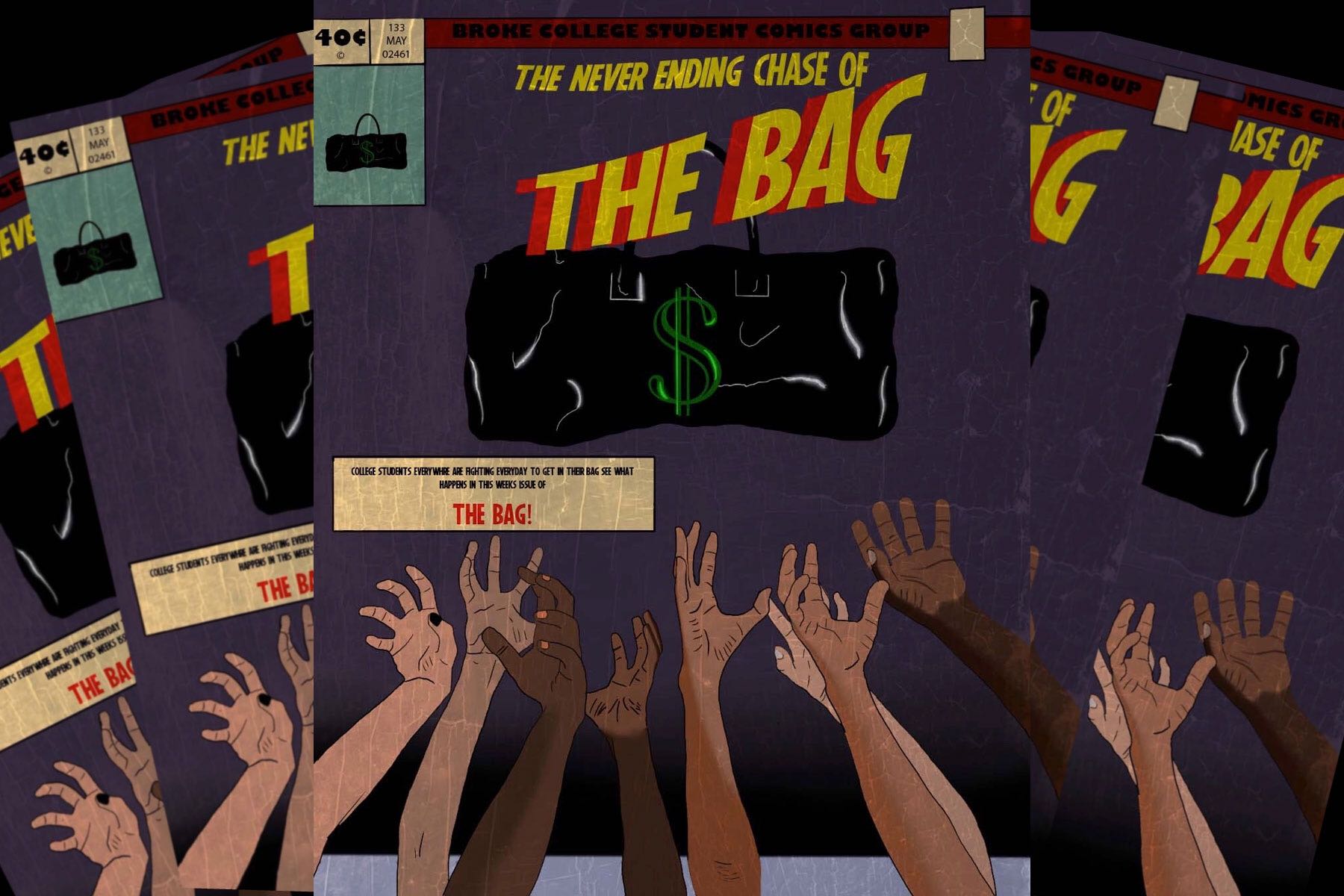When the general population talks about millennials or Generation Z, there is a lot of stigma surrounding them, especially about our excessive use of technology or our overall lack of respect (which, let’s be real, isn’t true). What gets lost in all of this talk is the credit that’s due to young adults and college students for how hard they work. In fact, hustle culture is on the rise, and it’s not slowing down anytime soon.
Hustle culture, which can simply be defined as constantly striving toward and even being in love with the idea of work, has become a popular phenomenon with people trying to get their foot in the door of their career.
Although this newly-coined hustle culture sounds dangerously close to just being a workaholic, there are definitely some differences. Aside from the part about being in love with work, the motivation behind hustling is usually better intended and individual to each person. Depending on the type of motivation, hustle culture can range anywhere from good to ugly, as seen below.
The Good
At the end of the day, working hard has only ever been beneficial in anyone’s career. Especially when you are straight out of college and working a full time job, being able to prove your ability to work has never been more crucial.
The biggest benefit of hustle culture is that there is no doubt that something will get done. The ambitious and goal-oriented people who strive for perfection are really just trying to do good by themselves, their bosses and the company that they’re working for. It’s really just a win-win for everybody.
Unfortunately, the one stereotype that younger generations do measure up to is that they don’t have loyalty to one specific company or position, which, to be fair, is completely true. According to a Gallup Report, 21% of millennials have changed jobs within the last year, and about 6 out of 10 are continuously looking or open to other opportunities.
On the surface, this might seem like none other than the case of a job-hopper, but in reality, this noncommittal attitude also ties into the idea of hustle culture. Studies have shown that millennials and Generation Z, as they enter the workforce, are more prone to work toward personal purpose and fulfillment, rather than a paycheck. Although a paycheck is an added bonus, sometimes money isn’t the only motive in career growth.
Young adults of the newer generations and college graduates alike are looking to gain marketable skills that will help them in the long run. Being part of the hustle culture means constantly being on the search for ways to grow, and sometimes that means leaving a job or company behind.
One thing to remember, though, is to always maintain professionalism, especially when leaving a company. It’s best not to burn bridges because you might want to use those connections you made from a previous job in the future.
The Bad
In the age of LinkedIn (an absolute must) and social media in general, the competition for employment and career opportunities has sky rocketed. Applying for positions that were listed in a newspaper made applicants one of just a few, which is a stark contrast to the hundreds of applicants for any given position listed on company websites and LinkedIn today.
Because of the wide accessibility the internet has given to job seekers, just having a degree and three to five years of experience isn’t enough to get hired these days. To prove that you’re a worthwhile hire, going above and beyond is the only way to stick out in a market full of overachievers.
This is where hustle culture goes bad. Being overworked and doing as much as you can just to meet the bare minimum of keeping up is exhausting and doesn’t always pay off. Not only is working overtime (both literally and figuratively) enough to prove your abilities, but side projects and working outside of work hours is an unsaid rule that will allow you to succeed.
Some people use hustle culture as a way just to keep up rather than something they want to be part of. Being overworked creates extreme burnout, which leads me to my next point …
The Ugly
According to the National Alliance of Mental Illness, employees in their 20s are experiencing higher rates of depression and anxiety compared to their older counterparts.
One of the biggest contributors to the added stress that we’re experiencing today is the constant comparison of ourselves to others. All over Instagram, Twitter and Facebook, people continuously post their successes, whether talking about a promotion in their company or successfully starting their own business, and it’s hard not to get down on ourselves or feel like we aren’t doing enough to succeed in our own careers.
Being surrounded by expectations for success eventually leads to feeling like we’re not enough or not trying hard enough, which results in us continuing to overwork ourselves. Having high levels of stress or feeling depressed at work actually contributes to lack of motivation and eventually leads to less productivity.
Hustle culture has instilled the idea that we’re required to succeed and to work extremely hard at a young age. Hustling like this doesn’t take into consideration what we need mentally and physically. It’s important to ask yourself: Have you gotten up from your desk and stretched? Have you had any water today? Are you getting enough sleep and not staying up all night to work?
Being a part of the hustle culture can be extremely rewarding, but it’s important to look at how it can cost us, as well. Not everyone has the same stamina, energy levels and mental health, so, if you’re deciding to participate in the hustle, it’s extremely important to find your balance.
Being able to set your own goals and know what you’re capable of is a good way to determine what you can accomplish. Once you stop comparing yourselves to what others are doing and begin to focus on the growth of your own career, that’s when the true hustle begins and you can succeed at your own pace.
















